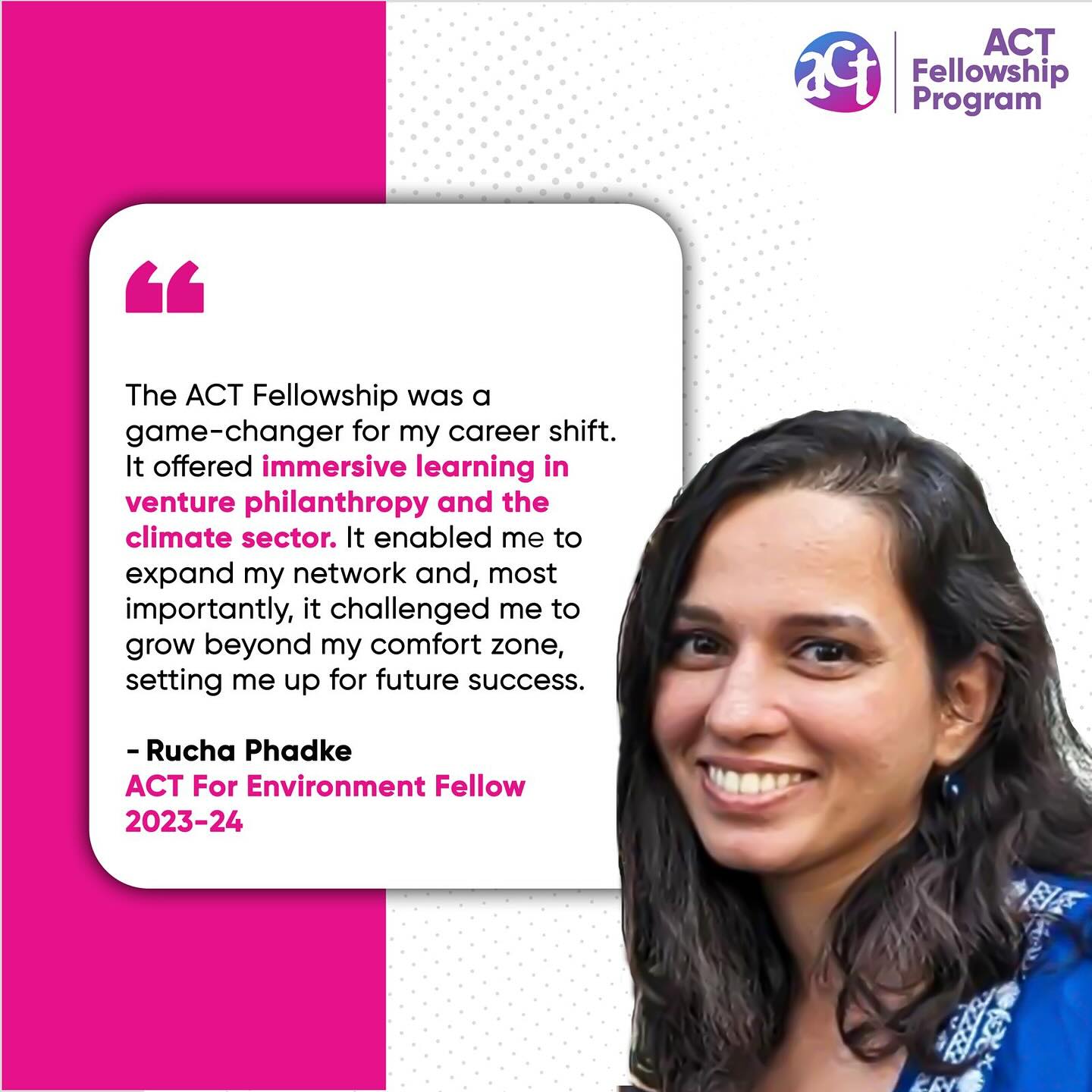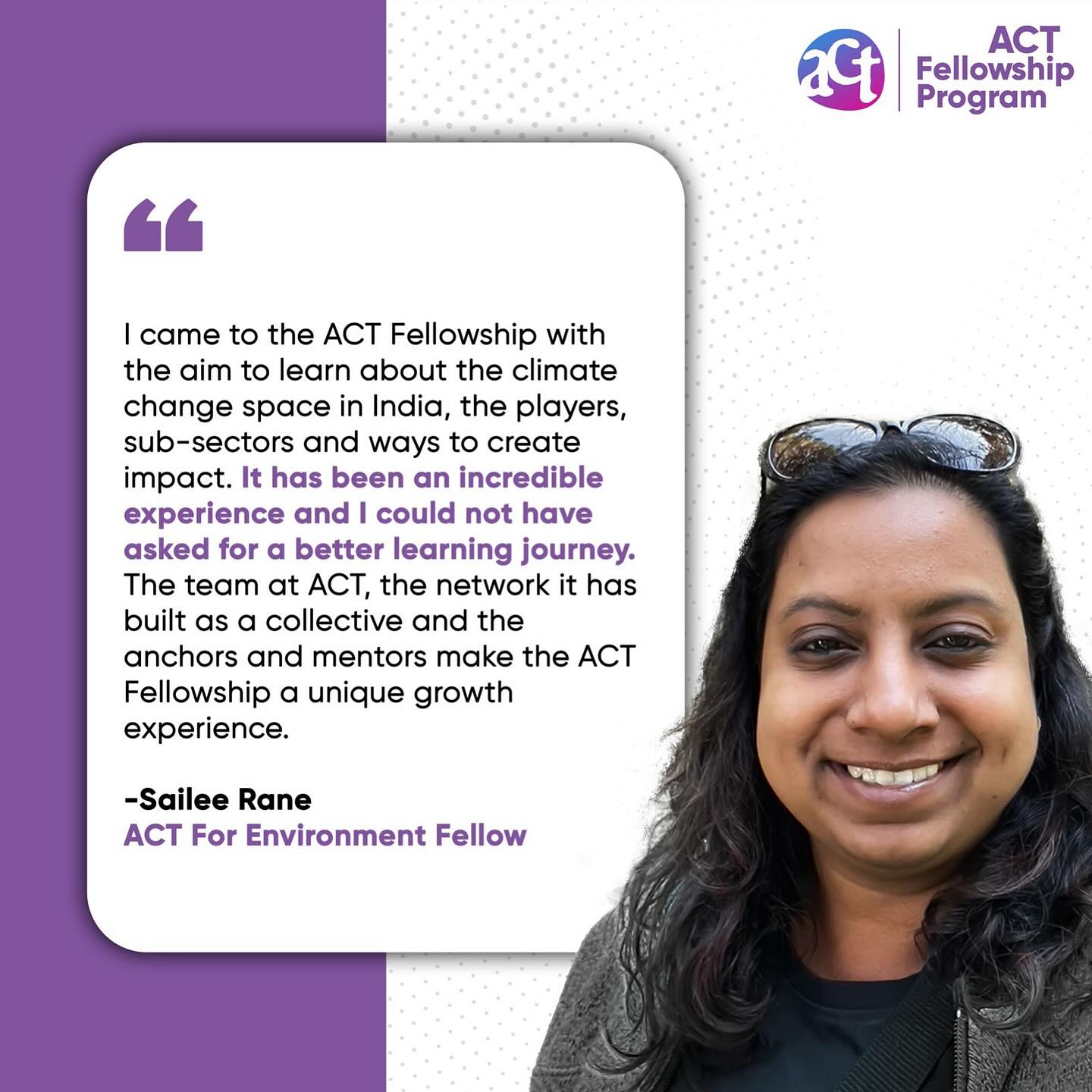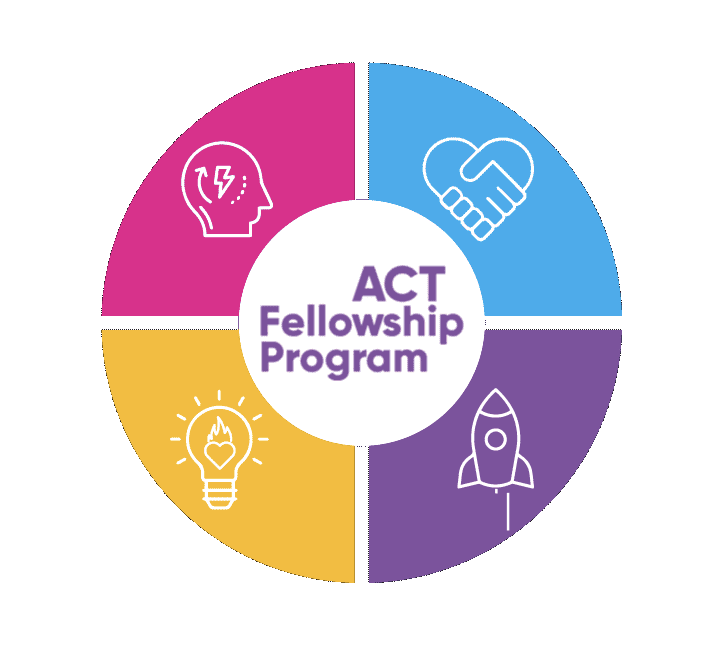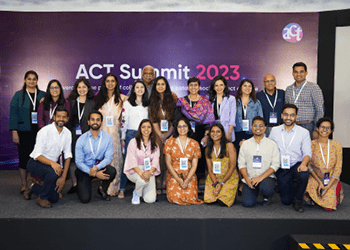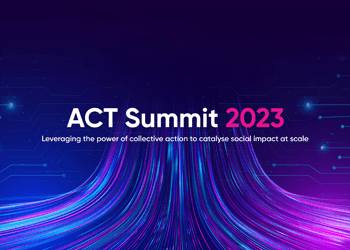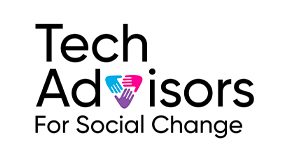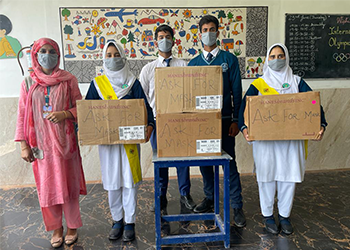On September 15th 2022, six of us walked into Sequoia Capital’s (now Peak XV Partners) office in New Delhi for our induction into ACT’s first-ever Fellowship program. After a two day deep-dive into ACT’s journey, their venture philanthropy model and their beliefs around collective action, we immersed ourselves into our work.
And it has been one INCREDIBLE journey. Over the past nine months, we have met inspiring social entrepreneurs who are hungry to create meaningful change; learned from VCs and industry experts on what it takes to build successful organisations that can create impact at scale; played a major role in several first-ever initiatives that ACT was building and most important of all – became invested in and committed to the larger purpose of our work here.
As our Fellowship comes to an end, we wanted to give everyone who is curious about what went behind the scenes a sneak peek into our experience!
What was the common expectation that we all had from the Fellowship?
Most of us were curious to witness how the venture philanthropy model works – how the grant-making process happens from behind the scenes – since it’s such a new and innovative way of approaching social impact. This experience exceeded our expectations for sure – we saw how grant proposals are evaluated, how due diligence is conducted, what we need to look for in social entrepreneurs but most importantly, how to leverage the ACT network for support and collaborate with the ecosystem at large.
What did a typical day for us, as ACT Fellows, look like?
A very typical day involved a fair mix of conversations between external stakeholders like social entrepreneurs and inspirational founders and brainstorms with the ACT team as well as due diligence/evaluation of tech/innovation led solutions being built by such social entrepreneurs. One key function that remained standard for all of us was staying abreast of the current trends in the sector along with sourcing working models of innovations that are solving problems at a large scale – which we recommended to the ACT team for further action.
What was the most enjoyable and exciting part of working at ACT as Fellows?
Being a part of the entire grant-making process – from initiating the initial interaction to guiding potential prospects through the Investment Committee discussions for funding approval. There is simply no greater joy than helping mission-driven social entrepreneurs in their transformative journey. We also enjoyed interacting with varied stakeholders ranging from founders, VCs, scientists, NGO leaders and other ecosystem partners. Moreover, it always helps to work with a purpose-driven team who are trying to solve the big social problems in our country.
What stood out to us while interacting with passionate social entrepreneurs?
The capacity to tackle intricate challenges amidst uncertainty, coupled with the ability to maintain a long-term perspective towards present actions – it has been inspiring to see the social entrepreneurial ecosystem for Bharat and it has been our privilege to meet and work with them. Another big learning for us has been that the pathway for innovation for social entrepreneurs needs a lot of support. For an innovation to create meaningful change, there is a lot of work that still to be done to create a conducive environment for social innovators and risk-takers.
Did the Fellowship give us any leadership opportunities?
ACT is built on the principle of collaboration which means that a lot of our work involves working with a diverse set of stakeholders and aligning all of them towards a common goal. As Fellows, we were able to take a lot of ownership of our work and we did get the opportunity to lead specific project initiatives – which has been a game changer.
What is one skill that we Fellows definitely gained during the Fellowship?
By evaluating tech solutions through primary and secondary research, we definitely picked up extensive industry knowledge and learnings, which are vital for any development professional. We also became more confident in our approach when dealing with senior experts (because we did so quite a lot!) and learnt the value of going into conversations well prepared. As we got to lead initiatives and work independently, we learnt to take risks, make course corrections, and grow through failures.
What was one new learning about the social impact sector after coming to ACT?
The complex nature of creating impact at scale requires one to be on top of their game and to be updated with the latest industry trends. For example, AI is revolutionising everything – this is exciting but also challenging and there’s something new to learn every day. Another key insight we’ve had is that inherent collaboration within the space and cross-learning among individuals is much needed and can lead to newer possibilities.
What is our understanding of the team culture at ACT?
Agility and a bias for action are fundamental tenets of the ACT culture. We say this because everyone is very action-oriented and always trying to leverage their networks to make progress. We have inherited this culture to keep things moving and are going forward with a keen emphasis on swift action and decision-making.
What are some attributes that we feel every Fellow should definitely have?
Fellows should be excited to take responsibility, curious to learn, and be ready to fail and grow through it.
How has our experience as ACT Fellows influenced our long-term career goals and aspirations?
At ACT, we’ve all experienced what the power of collective action could do. We will always look out for ways where aspects of collaboration and cross-learning can be incorporated. Our journey as Fellows has leveraged our common curiosity to know more about venture philanthropy and development financing, solidified our knowledge of the space and fuelled our interest to work deeper in the impact space.
While we may have concluded our Fellowship, we’ll always be a part of the ACT collective and will continue supporting the organisation. We all plan to continue working in the social development space in some way, shape or form while keeping impact at the centre of what we do.
Would we recommend the ACT Fellowship to young change-makers?
In short, YES! It is very different from other Fellowships and exposes you to how tech and innovation can create large-scale impact and how YOU can contribute to it. If you’re an aspiring social entrepreneur or someone who is keen to understand unique models of funding development, this is the place for you!
A note for the readers: all the responses are a culmination of the experiences of all Fellows. If you’d like to understand more, feel free to reach out to us on LinkedIn!

